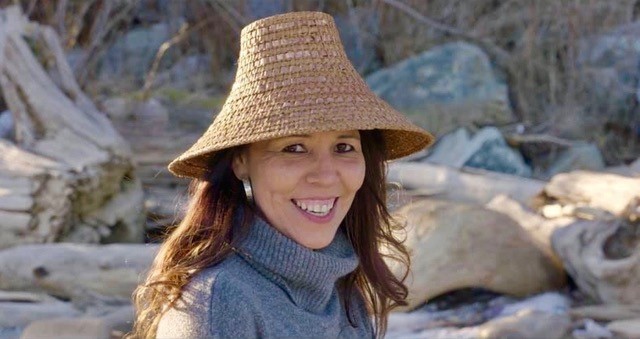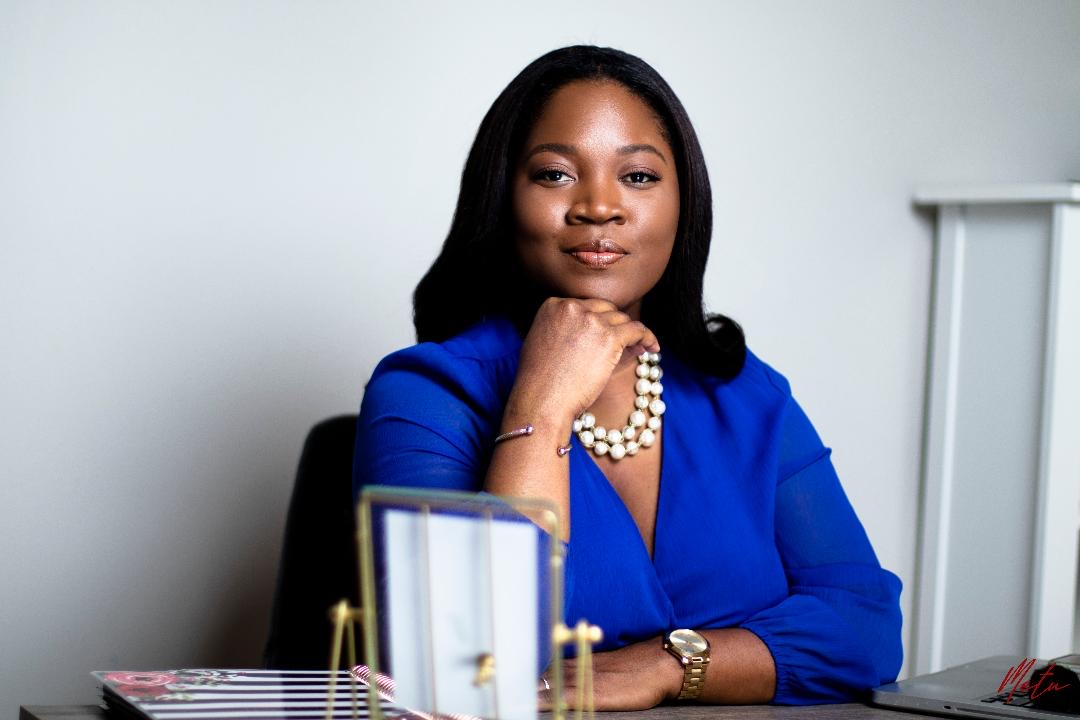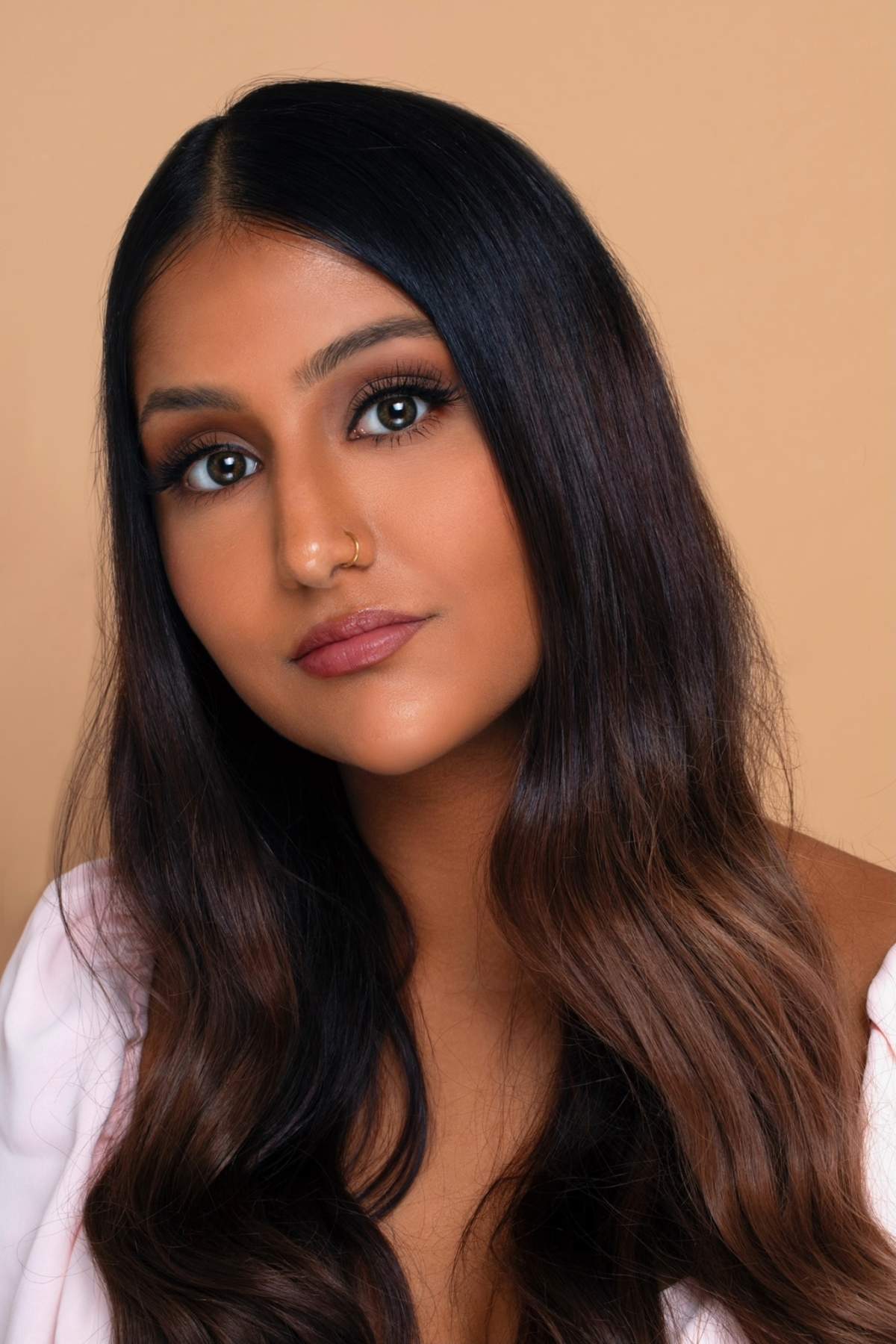The campaign theme of International Women’s Day (IWD) this year is “Break the Bias.”

It envisions a diverse, equitable and inclusive planet where the differences of women celebrated, and stereotypes and discrimination are a thing of the past.
The mission speaks deeply to Nataizya Mukwavi, founder of Black Women Connect Vancouver, who said celebrations must include an intersectional approach that gives women from all walks of life a platform to speak.
“If we’re not highlighting the true issues that a lot of women face globally, then we’re kind of doing a disservice and just doing a celebration to celebrate us,” she told Global News ahead of IWD on Tuesday.
“If we’re not being intersectional, and I don’t even mean by race — it’s women with disabilities, it’s everything — … let’s make sure we don’t box ourselves in as women either when we choose to highlight that day.”
Mukwavi is one of thousands of women and 2SLGBTQQIA+ folks in British Columbia who are working to uplift and empower their communities daily. Read about her work and four other amazing advocates below.
Nataizya Mukwavi
Mukwavi founded Black Women Connect Vancouver in 2017 to bring Black women together to build relationships, celebrate womanhood and support each other. She said she felt the need to “bridge the gap” between a small population of Black people who are dispersed throughout the Lower Mainland.
- Where did the tips go? B.C. restaurants say thousands missing from third-party account
- Nanaimo tugboat owner frustrated with justice system after offender released
- Westham Island Bridge in Delta closed for weeks as critical repairs needed
- B.C. government appoints former RCMP officer to bridge extortion communications
“It’s so important, especially for Black women, to not feel alone,” she told Global News.
“I know that in the workforce, if you feel like you’re the only Black woman, you can’t have certain conversations. You feel like, ‘Who else would understand what I’m going through?'”
Mukwavi, who is also the program manager for the Black Business Association of BC, said progress has been made for Black women in this province in recent years, but much of it has come from within the Black community. Social supports and grants are available for organizations like hers, she added, but the application process doesn’t always allow them to shine.
“I think that’s kind of the biggest issue — trying to prove why we’re needed in Vancouver,” she explained. “That becomes frustrating because I feel like it shows in our numbers if we’re bringing out hundreds of women for events … We can prove why we’re needed, but yet we apply for grants and then we’re not approved.”
She suggested entities that issue grants, such as the provincial government, carve out time to meet applicants in person and understand “the heart behind an organization.” Funds are limited for racialized communities, she said, and many non-profits just need a jumpstart to become self-sustaining.

Adaeze Oputa
Adaeze Oputa, program director for Empowered Black Girl, works closely with Black Women Connect Vancouver. Empowered Black Girl is a conference program that kicked off during the pandemic to mentor Black girls in B.C.
During the inaugural event for Grade 11 and 12 girls last year, Oputa said most revealed they were targets of bullying, “mainly centred around the texture of their hair or the colour of their skin.”
“They felt that they were not being heard by their teachers, their counsellors, and so they didn’t even know that they needed a space like Empowered Black Girl,” Oputa told Global News. “Supporting each other as women is the most important thing.”

Get daily National news
Oputa said she hopes to host the program’s first in-person mentorship session this year and will refocus the program around the concerns expressed by last year’s participants.
“If us adults can have conferences for different topics, why can’t teenagers be able to do that? And on top of that, Black girls?” she asked.
w̓úm̓xλaqs
For the past year, w̓úm̓xλaqs, who also goes by Louisa Housty-Jones, said she has focused on wrapping the 2SLGBTQQIA+ community into advocacy for Indigenous women. As the women’s representative for the BC Assembly of First Nations and a Heiltsuk Nation councillor, she said fighting for women means fighting for gender-diverse folks as well.
“This is my passion. It’s always been my passion,” Housty-Jones told Global News.
“I’ve come a long way from 21 years ago to be where I am today, and be able to speak for other women and help support and build the confidence and guide women in the right direction.”
A survivor of domestic violence, Housty-Jones has shared her story with women across the province and beyond. She has also worked hard to bring them to decision-making tables, through initiatives such as the BCAFN’s Women’s Declaration and the launch of a women’s council in Heiltsuk Nation last year.
“Women have always been the backbone to everything. Women are movers and shakers,” she said.
“I just want to tell every woman out there, 2SLGBTQ and gender-diverse, that we are equal, we’re strong and I hope my story inspires you to move forward because if I can do it, you can do it. We matter.”
Next month, Housty-Jones will help host a series of dialogue sessions that make space for women and 2SLGBTQQIA+ people to “gain strength and inspire.” She will also continue to pressure all levels of government to implement the national action plan for ending violence against Indigenous women, girls and 2SLGBTQQIA+ folks.

Rabiah Dhaliwal
Rabiah Dhaliwal, a biology student at the University of British Columbia, has been advocating since high school for more robust, intersectional mental health support, particularly for youth, women and members of racialized communities.
A survivor of bullying, Dhaliwal said she attempted to take her own life, and spent two months in recovery at an adolescent psychiatric ward, where she decided to make a change.
“I got introduced to people with lived experiences like mine, even therapists and counsellors who were women — women of colour that I could relate to,” she told Global News.
“I think it’s important when we talk about women’s mental health to make note that women exist at so many intersections, and not one of us can represent all of us and all of our experiences, which is something that I feel like kind of gets diluted or misunderstood.”

Dhaliwal said she aspires to be federal health minister one day to help eliminate disparities in the health-care system, including funding for mental versus physical health, and the stigma still attached to seeking mental health support.
International Women’s Day is particularly important to her, she added, because seeing other women succeed in the “advocacy space” has helped propel much of her own work.
“While it was a scary thing for me to share my story, it was because of other women that I felt empowered to,” she said.
“So I feel like International Women’s Day is just a really important day to commemorate the ways in which we take inspiration from each other and how we’re going to pay that forward as well to future younger generations and highlight these amazing women across different sectors doing amazing work.”
During COVID-19, Dhaliwal has helped launch a project to donate 1,000 self-care and wellness items to frontline workers at Surrey Memorial Hospital. She’s also launching a new campaign that highlights the different ways people from all walks of life found joy during the pandemic.
Grace Lore
When it comes to advancing rights and opportunities for women, Victoria-Beacon Hill MLA Grace Lore acknowledged the provincial government has “a lot of work to do.”
As parliamentary secretary for gender equity, Lore said she is tasked with both undoing “damage” from decades of underfunding for women and ensuring provincial policies include a thorough gender-based analysis.
“My background is with sexual assault centres working on advocacy, but also on the front line and in academia, researching gender and politics and social policy,” Lore told Global News. “So I’ve personally come at this work from a number of different angles, and I think that the task before us involves work in all those areas.”
Lore, who has held the position since 2020, said there are advantages to being a parliamentary secretary rather than a cabinet minister, because she can pull threads together from different government departments.
“I work for women, for Two-Spirit, for trans and non-binary communities across those ministries all the time. People’s lives cross ministries.”
Lore said she is particularly proud of B.C.’s recent move to designate emergency sexual assault services as “critical,” which means their funding will not be inconsistent and grant-based moving forward. Budget 2022, tabled last month, includes $22 million in funding over three years to about 50 community-based sexual assault response organizations.
Lore recognized women — particularly trans women and women from racialized communities — have faced increased violence during the pandemic and said roundtable discussions for drafting a gender-based violence action plan begin this month. They will involve men and boys with a focus on “awareness and prevention,” she added.
On IWD, Lore said she is thinking about the generations of advocates on whose shoulders she stands.
“Those who have done the heavy lifting, who have fought, who have created and protected services, who have raised issues and gotten public attention, who have created opportunities, and worked to keep people safe,” she told Global News.
“I think about those who come after us, the sisters, daughters, sons and brothers and those we are working for and with so that somebody isn’t doing this job forever.”











Comments